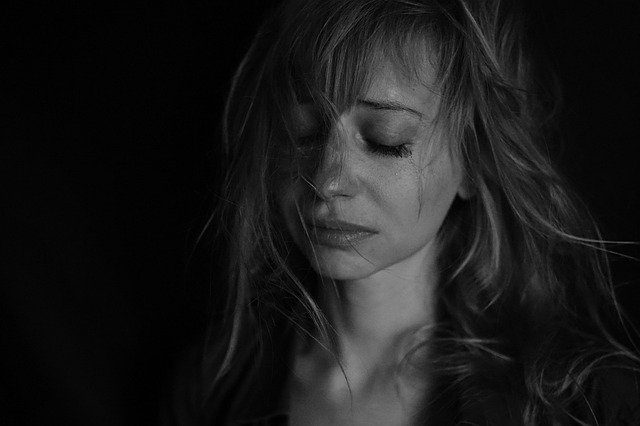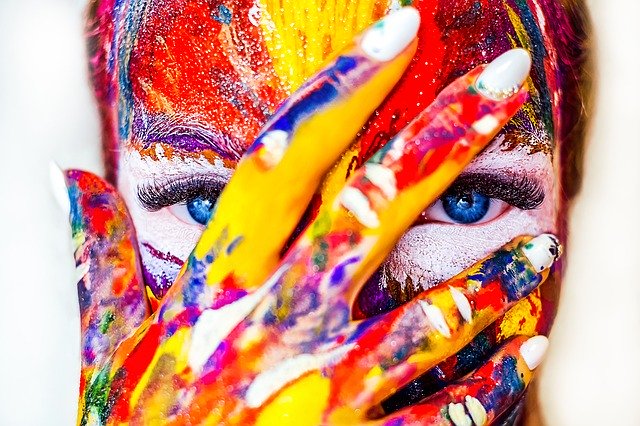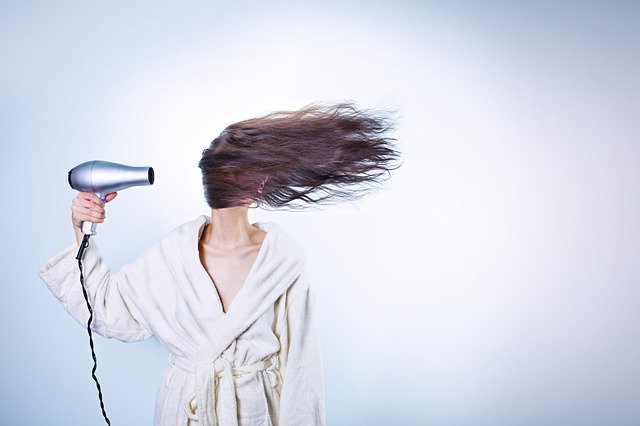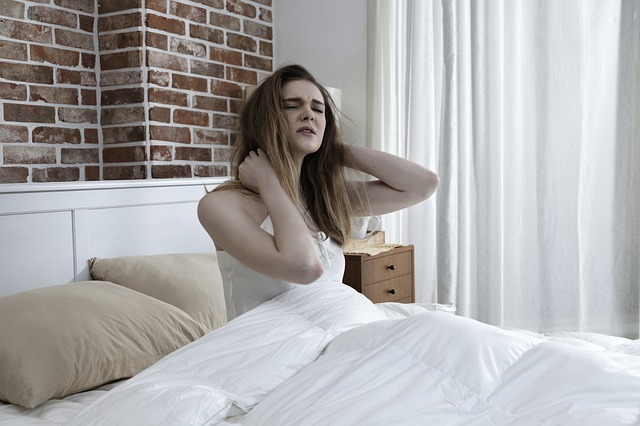
Who decides on your depression symptoms?
Depression symptoms diagnosis.
Just a reminder that I am writing this blog from my own experience. I am not a doctor or psychiatrist. Always speak with your doctor or health care professional about your depression symptoms for a depression diagnosis and recommended treatment.
So, without further ado...
Whenever I talk to people about how they perceive depression they usually tell me they expect someone to be sad. A very common picture of depression is a person sitting at home, staring off into space. This person might be crying, but generally it's just that they look sad and lost.

It's pretty safe to say that the majority of people believe depression to be an emotional state, sadness, that will go away if the person just does something to make them happy. And it is true that some common depression symptoms can include sadness and a persistent low mood.
But, it would be completely inaccurate to think that's all there is to depression. Depression symptoms can be the same for different people in some aspects and also entirely different. For instance, some people experience a lack of energy that makes it impossible to function; however, others stay so busy they nearly have a breakdown from exhaustion because that is how their depression manifests.
And yes, many depressed people "look" happy to outsiders.
The tiring game of masks
I don't know if you ever watched Game of Thrones. If you did, you will already know about Arya Stark and how she can eventually take on the face of anyone she wishes. That's exactly how I felt at times. Depression was a lot about hiding what was really going on. That meant I had to be a "character" facing outward and even that would change, depending on who I was with.
A lot of other people battling depression face the same situation. They might have small kids and don't want them to know they are dealing with depression. So, they put on a happy face and try to function like always.
Others might be in a management position at work and feel like speaking about their depression would get them fired. They show up to work every day, smile, make small talk with their colleagues, and nobody knows what is truly going on inside.
This is what makes defining depression symptoms so difficult. Every person might have varying symptoms, on top of or instead of the clinical definition. That also adds a stumbling block for your doctor, who has to decide whether your depression symptoms fall under a clinical depression diagnosis or not.
“I saw the world in black and white instead of the vibrant colors and shades I knew existed.”
- Katie McGarry
The DSM-5 and depression symptoms
Depending on where you live, your doctor will likely use something like the DSM-5 as a guideline on depression symptoms. In short, it's the fifth edition of the Diagnostic and Statistical Manual of Mental Disorders. This manual is published by the American Psychiatric Association and contains guidelines on diagnosing mental disorders.
The manual outlines the commonly accepted symptoms that arise for people suffering from depression. It's a good place to mention here that the DSM-5 has received its share of criticism from around the world. As a person suffering from depression, you will easily understand why.
Trying to diagnose mental disorders based on a set list of symptoms does not recognize the wide variety of symptoms out there. That's especially true when two people battling depression could experience two entirely different sets of symptoms.

Keep in mind that the symptoms considered normal for depression are just a guideline to assist your doctor with arriving at a label, so she or he can start helping you. It is by no means an exhaustive list of what people with depression experience, or a judgement that your symptoms are not valid because they are not listed.

Which depression symptoms are "normal"?
Before we get into the 10 depression symptoms that hit me completely out of left field, let's talk about the symptoms that are generally accepted as normal. And by normal I don't mean that it's normal for you to battle depression. These are some standard symptoms that your doctor would expect you to have, when you are depressed.
My doctor told me it was "normal" to have suicidal thoughts when I was depressed.
That did not make my diagnosis any easier, but it gave me the feeling that there were other people out there, suffering from suicidal thoughts as well. I was not alone.
How do you even start sorting out all the things you are feeling and experiencing when you are depressed?
It's easiest to sort the symptoms into logical categories, for instance. One way is to look at symptoms through how you are experiencing them.
Mental Symptoms
This is anything you are feeling, but you are not physically experiencing it.
General depression symptoms can include:

Physical Symptoms
These are things you are actually feeling somewhere in your body. They can include:
Pretty much everyone I know, myself included, experienced one or more of these symptoms while depressed. I experienced them to varying degrees at different times in my depression. Sometimes I had better days and sometimes I could not get out of bed.
But, by speaking to others, I realized that the common thread of these symptoms connected us in some way. It meant, depression was real and what I was going through wasn't just in my head. It gave me a sense of belonging, as sense of reassurance that I was not alone with my depression symptoms.

Depression symptoms that don't fit
This sense of belonging didn't last very long, unfortunately. The reason was that I quickly began experiencing symptoms that did not fit with what was considered "normal". The manual did not list my symptoms. What happened next was that I was accused of making things up to get more attention.
In my opinion, this is the exact situation of why depressed people often try to hide their depression. Judgement from other people can be swift and extremely hurtful. It can set back your recovery and push you right back over the edge.
Here are the 10 depression symptoms that hit me out of left field - and didn't really fit with anything in the "manual".

1. Ringing in my ears
There is a medical condition called "tinnitus", which is a ringing (or other noise) in one or both ears. Typically, tinnitus is a symptom of something else going on in your body. In many cases, this affects elderly people.
For me, this noise could get quite loud. I heard it mostly in my right ear, as a high-pitched tone that was just continually there. Luckily, as my depression got better, the sound would get quieter. But, I still notice that I can hear it again during periods of high stress or times when I am going through grief and loss.
2. Feeling like constantly having the flu
When my depression got worse, I would feel off at first. I couldn't even really put my finger on it. It felt like my body was fighting the flu. Tiredness overwhelmed me and my body ached. Often, I would start fighting a dry cough that would keep me up at night. An itchy and runny nose followed. My eyes would get puffy and red.
At first, I thought it was an allergy and I started taking anti-histamines. Nothing happened and the situation did not improve. Then, I thought I was getting a flu and as a result, started ramping up anti-virals, immune boosters, vitamins, and teas for hydration. Nothing made any kind of difference.
It was not until I started breaking through my depression that I realized the depression itself caused these symptoms. The feeling of constantly battling the flu went away when the depression left and when I have very tough times full of stress, I notice I start feeling that way again.
3. Acid reflux
I have always been a very picky eater, but I have never really had any issues with acid reflux. Very spicy dishes can mess with me for a day or over night; however, constantly dealing with acid reflux after eating any kind of food was new for me.
Especially when I was lying down, the feeling of acid burping up constantly was nearly unbearable. My throat became irritated and I was in a lot of pain. I ate healthy food because my mom would cook for us, so I couldn't explain what was happening. It wasn't until I found relief from depression that this strange symptom subsided.

4. Difficulty seeing colors
This was quite a strange symptom and for the longest time I actually thought that I was losing my mind. Ever since grade five, I have worn glasses, and my eyesight got worse the older I got. I knew about this and I did fine with my contact lenses. I could see everything perfectly and was able to do sports. Driving and watching television were not an issue, for instance.
After becoming depressed, I felt like there was something wrong with my eyes. I went to the eye doctor for an eye exam. Nothing out of the ordinary was found. I felt like I was not able to see color. No, I didn't fell like I was color blind. I felt like the colors I was seeing looked muted, hazy, and just very different than before. Today, I would describe it like someone had popped a weird Instagram filter over my vision.
I realized this was also related to my depression. When I got better, my eyesight normalized, but no wonder depressed people feel like they are in a haze - you literally might be!
5. Cracking my teeth
This is one of the most unpleasant symptoms of my depression and I am still dealing with the damage today. Somehow, the depression caused me to tense up all the time and this affected my sleep. I did not have any teeth grinding problems before and my teeth were in great condition.
Because of depression, I developed teeth clenching and the result was three cracked teeth. As my depression subsided, I did not crack any more teeth, but the damage was already done. Even though the worst seems to be over now, my dentist still recommends a night-guard - just in case I have a stressful time and it starts again.

More weird depression symptoms
6. Twitching in the right eye lid
Twitching sometimes happens with various body parts and it happened to me before as well. But the twitching eye lid was another one of those strange depression symptoms that went away afterwards. I put the twitching down to a possible lack of magnesium or calcium and didn't think much of it.
The problem was it got so bad that it affected me wearing my contact lenses. It was always just in the right eye, where the upper lid on the side toward my ear would twitch for prolonged periods of time. It became pretty painful and I could not find anything that helped.
I have not experienced this symptom in a few years now, but when I have a particularly tough time, I notice a tingling feeling in that exact spot. Just like it's gearing up to twitch again.
7. Hair falling out
Hair loss can have so many causes and especially for women, this can definitely be hormone-related. My hair would literally fall out while brushing it or touching it. There were so many hair clumps in the shower that my dad had to install a special contraption that would catch them. I had clogged the shower drain way too many times already.
As my depression continued, I resigned myself to the thinner hair and the shock of holding bundles of it in my hand. I have very fine hair, so it was quite noticeable and I wore my hair back a lot with various hair pieces in order to hide it.
The turning point came when I finally broke through my depression. I still don't have a ton of hair because it's so fine, but it's no longer falling out while brushing or clogging up the shower drain excessively. I am able to have my hair extensions put in without problems, which makes me think this was absolutely depression related.

8. Strange rash on my chin
There are a few people in my family who have eczema and this started out as me thinking I had just developed it too. I got these strange small red bumps on my chin. They looked like rubella bumps. The area felt hot and sometimes the bumps would break open and clear fluid would come out.
I saw dermatologists and had myself tested for anything I could think of - from herpes to measles - I was really freaked out. Nothing yielded an answer. I washed my bedding very frequently, used only clean make-up sponges, and followed a gently cleansing routine to keep it clean but not irritate it.
The choices were slim. I couldn't find anything that helped, so I just covered it up with make-up and ignored it as best as I could. I am happy to report that with the departure of my depression, the red spot on my chin cleared up and has not been back. Strange?!
9. Unable to wear ear buds / headphones
This partly had to do with the ringing in my ear, but also with the fact that my ears were super sensitive. For the longest time, I was not able to wear any ear buds, ear plugs, or headphones. They hurt my ears too much. When I listened to music, I was usually curled up with a small speaker in my bed. Later, I listened to music off my phone without headphones.
Now, I am able to wear headphones, ear buds, and headsets again. Lucky, because I need to do a lot of that for work. The only explanation I can think of is that this was also depression related and just another one of those random depression symptoms.
10. Losing my sense of taste
This was one of the worst random symptoms because I love to bake and cook. During the times when my depression was at its worst, I was not able to reliably taste anything. Without knowing what I had bought, I couldn't taste the difference between potatoes and carrots, or distinguish between an apple and a pear. Everything was tasteless and just tasted like mushy porridge. I also had trouble differentiating between salty and sweet, which made cooking a nightmare.
I was very freaked out when I realized my taste was gone and for the longest time I thought it would never come back. Thankfully, my taste has been completely restored and I am grateful for that every day. A world without taste was quite an awful experience.

The Takeaway
Whatever your depression symptoms are...
My goal with this post is to show you how varied depression symptoms can be. In other words, just because your symptoms might not be "mainstream", doesn't mean they are not real. If your doctor has not heard of your symptoms in connection with depression, it might warrant doing some more research. Above all, what you are feeling IS real to you.
I hope I didn't scare you completely now because yes, the list of depression symptoms can be quite exhausting; however, the main takeaway should be awareness. If you become aware that many other people are experiencing some of the bizarre symptoms you are, you can shift your focus from worrying about the symptoms to healing.
I spent a lot of time trying to alleviate and battle the never-ending depression symptoms that I lost sight of the bigger problem at hand - the depression itself. Spending your days in pain or with a new scary symptom cropping up takes pretty much any energy you may have left.

...they will likely disappear as you heal
Depression has the power to affect you mind and your body; however, the good news is that nearly all my depression symptoms have now disappeared. The majority of what you are experiencing is reversible with healing. Take me, for instance. Everything I just wrote about has reversed, minus the broken teeth and the occasional sound in my ear.
It is ok to acknowledge and be present in all of your symptoms. After that, it is vitally important to realize they are not permanent.
Caught up in strange and random symptoms, we often lose sight of a possible "life after depression". It is extremely important that we don't just read about everybody's symptoms online and then resign ourselves to feeling like that for the rest of our lives. You can heal. And you absolutely deserve to feel happy and healthy.

Whatever you feel and experience with your depression is absolutely real. Don't let others tell you what your depression "should" look like and focus all your energy on healing!
